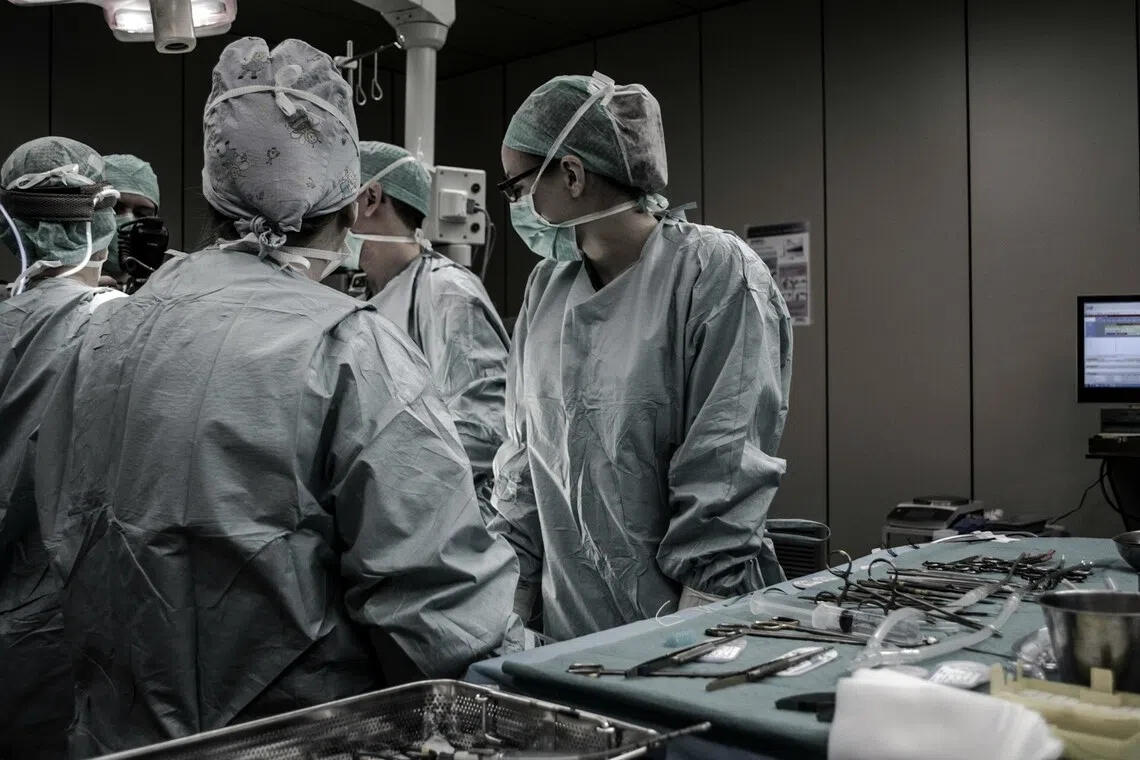South Korea to permit organ donations after patient’s heart stops, amid nationwide shortage
Sign up now: Get insights on Asia's fast-moving developments

The South Korean government aims to raise donor registration rates from 3.6 per cent to 6 per cent by 2030.
PHOTO ILLUSTRATION: UNSPLASH
SEOUL – South Korea’s Health Ministry on Oct 16 announced its first-ever national plan to allow organ donations after a patient’s heart stops, a reform aimed at addressing the country’s widening imbalance between organ transplant demand and donation rates.
Nearly 55,000 people are on waiting lists for organ transplants in South Korea, where the average wait stretches to four years. Some patients wait up to eight years for a kidney, while 8.5 people die each day on average before receiving a needed organ.
Currently, South Korea’s organ donation system depends almost entirely on brain-dead donors. However, the number of such donors has steadily declined – from 478 in 2020 to 397 in 2024 – while the number of patients waiting for transplants has increased sharply, from 43,182 to 54,789, during the same period.
Despite rising demand, only 3.6 per cent of the population has registered as organ donors, and the number of brain-dead donors declined by 18 per cent in 2024.
The comprehensive plan for organ and tissue donation and transplantation from 2026 to 2030 – the country’s first-ever national framework on organ and tissue donation – outlines a series of measures to expand organ donations and ease the nation’s severe transplant shortage.
To address this growing imbalance between supply and demand, the government plans to introduce organ donation after circulatory death, or DCD, a process that allows donation from patients whose hearts have stopped following the withdrawal of life-sustaining treatment.
Health officials said the process is already common in countries such as Spain, where per capita organ donation rates from both brain-dead and circulatory-death donors are comparable – 26.22 per million and 27.71 per million people, respectively.
The change will require legal revisions to allow patients who consent to both life-support withdrawal and organ donation to proceed through the DCD process.
“When a patient who has agreed to end life-sustaining treatment and organ donation is disconnected from life support, the heart stops, and after a globally recognised five-minute ‘no-touch period’, the patient is officially declared dead before organ retrieval begins,” explained Professor Lee Sam-yeol, head of the Korea Organ and Tissue Donation Agency.
Through the plan, the government aims to raise donor registration rates from 3.6 per cent to 6 per cent by 2030, and to increase the number of brain-dead organ donors from 7.8 per million to 11 per million people in the same period.
The ministry also plans to expand the number of donor registration centres from the current 462 to 904 nationwide, designating additional registration locations such as local government offices and the Korea Road Traffic Authority.
It will also simplify donor reporting systems, enhance compensation for medical staff involved in donor management and review new organ types eligible for transplantation as medical technology advances.
In addition, the plan strengthens social recognition for donors and their families. The government will consider expanding financial assistance – currently up to 5.4 million won (S$4,900) in funeral and medical costs – and build public memorial spaces, such as Walls of Remembrance, in hospitals and government buildings.
Efforts will also focus on domestic tissue donation, with over 90 per cent of human tissue used in South Korea imported. The ministry will improve awareness, support local tissue banks and train specialists for tissue collection.
The plan calls for stricter oversight of living and minor donors, with the government considering limits or gradual abolition of organ donations from minors. It also plans to include stem cell transplant expenses under the national health insurance system to reduce out-of-pocket costs for recipients.
The Health Ministry said the reforms aim to make organ donation “a more accessible, transparent and life-saving process” as South Korea faces an ageing population and growing transplant needs. THE KOREA HERALD/ASIA NEWS NETWORK


